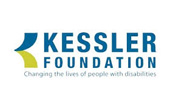HAUPTMENÜ
AWARDS
Forschergeist gefragt: 14. Novartis Oppenheim-Förderpreis für MS-Forschung ausgelobt
FernstudiumCheck Award: Deutschlands beliebteste Fernhochschule bleibt die SRH Fernhochschule
Vergabe der Wissenschaftspreise der Deutschen Hochdruckliga und der Deutschen Hypertoniestiftung
Den Patientenwillen auf der Intensivstation im Blick: Dr. Anna-Henrikje Seidlein…
Wissenschaft mit Auszeichnung: Herausragende Nachwuchsforscher auf der Jahrestagung der Deutschen…
VERANSTALTUNGEN
Wichtigster Kongress für Lungen- und Beatmungsmedizin ist erfolgreich gestartet
Virtuelle DGHO-Frühjahrstagungsreihe am 22.03. / 29.03. / 26.04.2023: Herausforderungen in…
Pneumologie-Kongress vom 29. März bis 1. April im Congress Center…
Die Hot Topics der Hirnforschung auf dem DGKN-Kongress für Klinische…
Deutscher Schmerz- und Palliativtag 2023 startet am 14.3.
DOC-CHECK LOGIN
MS experts call for increased focus on progressive MS rehabilitation research
- International Progressive MS Alliance contends that the development of rehabilitation strategies for people with progressive MS is lacking compared to other types of MS
East Hanover, NJ., USA (May 28, 2021) — An international team of multiple sclerosis (MS) experts has identified four under-researched areas that are critical to advancing symptom management for progressive MS, recommending interdisciplinary collaboration among scientists, clinicians, industry leaders, and those with progressive MS. Their call to action was published in Multiple Sclerosis Journal on March 15, 2021, in the article „Prioritizing progressive MS rehabilitation research: A call from the International Progressive MS Alliance“ (doi: 10.1177/1352458521999970). The Alliance was represented by authors from Canada, the United States, the UK, Australia, Denmark, Belgium, Germany, and Switzerland.
Recent advances in MS research have resulted in a variety of disease-modifying therapies that can significantly improve quality of life for people with certain phenotypes of the disease. For example, those with relapsing-remitting MS have access to more than 20 therapies. However, these phenotypes represent only some in the MS community.
A major barrier to the development of rehabilitation therapies for progressive MS is the fact that the vast majority of studies conducted to explore rehabilitative therapies involve people with relapsing-remitting MS, not progressive MS. In addition, trials are often designed based on strategies used for pharmaceutical trials, which are not necessarily conducive to clinical rehabilitation trials. Unfortunately, this lack of clinical data to inform therapies for progressive MS leaves this population with few options to manage potentially debilitating symptoms that can lead to challenges such as loss of a job, personal and family stress, and financial strain.
In this article, experts from research, medicine, and industry highlight four major symptoms affecting people with progressive MS that should be the focus of new research: fatigue, mobility and upper extremity impairment, pain, and cognitive impairment. They contend that rehabilitative therapies show great promise for managing these symptoms and for improving physical and cognitive function as well as quality of life, and that directing research efforts toward rehabilitation is critical to developing effective therapies.
„There is a strong need to study the effect of early preventive interventions and to evaluate management of existing symptoms,“ says co-author John DeLuca, PhD, Senior Vice President for Research and Training at Kessler Foundation. „Effective symptom management and rehabilitation remain far behind in progressive MS. We have little empirical rehabilitation data, and our understanding of mechanisms underlying symptoms and treatment responses is incomplete.“ Dr. DeLuca emphasizes, „We have ample evidence from research in other clinical areas that rehabilitation can improve quality of life and find support from diverse payers and stakeholders. Our aim is to bring attention to the pressing need to develop rehabilitation treatment interventions for the progressive MS community.“
—
Learn more about ongoing MS studies at Kessler Foundation at: https://kesslerfoundation.org/MSresearchstudies
About Kessler Foundation
Kessler Foundation, a major nonprofit organization in the field of disability, is a global leader in rehabilitation research that seeks to improve cognition, mobility and long-term outcomes, including employment, for people with neurological disabilities caused by diseases and injuries of the brain and spinal cord. Kessler Foundation leads the nation in funding innovative programs that expand opportunities for employment for people with disabilities. For more information, visit KesslerFoundation.org.
Kessler Foundation, 28.05.2021 (tB).
Schlagwörter: Fatigue, Kognition, Multiple Sklerose, Neurologie, Schmerzmedizin


